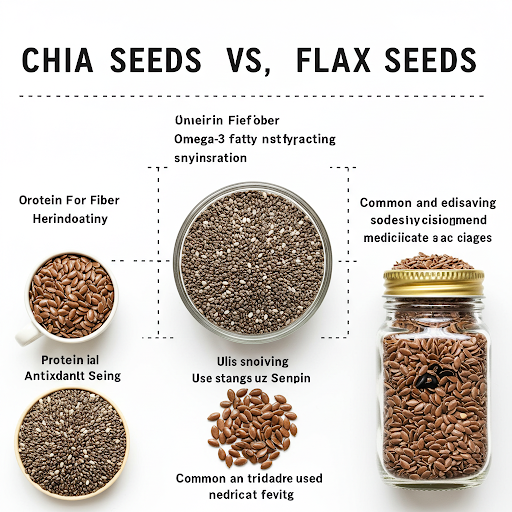Introduction to the Carnivore Diet
In recent times, the meat-only diet’s become an unusual take on food choices – drawing folks who want simpler meals while checking out fresh paths to feeling better. Relying only on animal products, it sharply breaks away from common advice that pushes varied plants. The quick spread? Likely thanks to how basic it is – and strong stories from those who swear by it.
The idea takes a lot from how ancient humans ate. Because early people in tough cold areas survived mostly on meat, fans say this makes sense biologically. Linked to a raw, basic style of eating, it feels real to those tired of today’s packaged meals. To them, it’s about getting back to rich, natural foods – just stripped down and straightforward.
Looking at how the carnivore diet came about – while also seeing what draws folks to it – helps explain what it’s meant to do, where it might help, yet still leaves experts debating its role in wellness.
Understanding the Carnivore Diet
At its heart, the carnivore way of eating cuts out every kind of plant food, sticking only to what comes from animals. People who follow it usually go for meats, seafood, eggs, along with fatty parts from animals, choosing things straight from nature when possible. What draws folks in is how basic it feels – no tricky schedules, counting numbers, or worrying about serving sizes. Rather than rules, you just eat enough animal-sourced items each day to keep your body going.
A few key ideas shape this method. To start, cutting out plants matters most – some think natural substances in veggies might trigger gut issues for certain people. Next, focusing on rich nutrition stands out; liver and fattier animal parts are usually suggested so you get enough essential nutrients.
Misconceptions around the carnivore diet pop up a lot. Some think it’s just eating tons of meat for fun, yet many who follow it long-term focus on mindful picks – like mixing fats with protein wisely while sticking to clean, basic animal products. Knowing this difference gives people clearer insight into if this way fits their lifestyle or body goals.
The Role of Nutrition in the Carnivore Diet
Nutrition drives how the carnivore diet works. When you drop plants, every nutrient comes from animals instead. Animal foods pack top-tier protein along with vital fats and plenty of B vitamins, iron, zinc, plus A, D, E, and K. Fans say this dense mix cuts hunger swings while keeping energy steady through the day.
This way of eating stands apart from veg-heavy styles like being a vegetarian or going fully vegan – those depend a lot on fiber, natural protectors in food, along with various substances from plants; meanwhile, the meat-only plan zeroes in on nutrients from animal sources that your body can easily use. One might work just as well as the other for feeling good, yet their setups and core ideas aren’t even close.
Folks worry they might miss out on key nutrients – like vitamin C, fiber, or specific minerals. Supporters point out that organ meats pack a strong nutritional punch instead. Also, the body changes how it uses energy when carbs drop low. Even so, careful meal choices matter to avoid shortfalls and stay healthy over time.
Folks who get how nutrition works can try the meat-only plan with clear eyes, knowing what they’re doing, because they’ve done their homework.
Case Study: A Personal Transformation
To show what the carnivore diet might do for health, take Sarah – a 35-year-old office worker – dealing with constant tiredness, added pounds, yet stomach issues that kept coming back. She’d tested different eating plans, but ended up stuck in a loop: strict diets followed by letdowns, never seeing real change.
Once she looked into no-frills eating plans and talked things through with her doctors, Sarah gave the meat-only approach a shot. Its simplicity fit right into her hectic days – unlike the packaged stuff she used to eat without thinking. What drew her in was how basic it felt; instead of juggling ingredients, she focused on solid, natural options that actually fueled her body.
The first switch was tough. Cravings hit hard, while some pals doubted her choice. Still, tweaking meals bit by bit – trying new meat types or ways to cook them – helped her settle into a groove. Chatting on web groups, reading real-life updates from people making the same move gave her that extra push to keep going.
As days passed, Sarah saw slow but clear progress – her stomach settled down, she felt more lively, while the pounds started dropping without effort. What happened to her shows that personal food tweaks, when kept up regularly with a bit of help, can lead to real wellness shifts.

Journey and Experience
Switching to the carnivore way brought some changes at first – Sarah felt them too. When carbs dropped out, her system took time to catch up, dealing with urges and uneven energy levels along the way. Trying various meats helped, while picking up quick cooking tricks kept things fresh. Figuring out tasty animal-based dishes? That’s what smoothed everything out.
The mental side proved tough too. In social settings or during meals, things got trickier – talking about food choices often sparked awkward moments. Still, connecting with understanding people boosted her resolve and kept her on track. Those circles offered real help when problems came up, along with motivation and down-to-earth tips.
Sarah’s story shows changing how you eat takes time, help from others, sometimes switching things up. Her drive mattered – yet having people around who cared made a real difference in moving forward.
Weight Loss and Health Outcomes
Plenty of people try the meat-only diet looking to shed pounds – Sarah was no different. In those early months, she started dropping weight fast, along with body fat, making her stick with it more. Feeling fuller longer came from eating lots of protein while cutting out sugary snacks and junk carbs, helping things move forward.
Beyond shedding pounds, Sarah noticed extra perks – her energy stayed more stable all day, bloating dropped off, digestion felt easier, also her skin looked brighter. Seeing these changes made her think of the carnivore plan as a lasting change instead of just a short fix.
The diet’s staying power? Still up for debate in the community. People such as Sarah, who like clear guidelines and see good outcomes, often stick with it over time. Others might do better with a looser version they can live with. What really matters is knowing yourself – building habits that feed your body without burning you out.
Expert Opinions and Scientific Insights
Nutrition experts still don’t agree about the meat-only diet. While some say it might help people dealing with immune system problems, gut troubles, or tough metabolism issues, others warn cutting out whole categories of food could lead to health concerns later – especially when it comes to missing vitamins, lack of fiber, and effects on heart-related numbers. Instead of grouping everything together, they stress looking at individual needs, though long-term safety remains unclear for many specialists.
Research into the carnivore diet isn’t much yet, though it’s picking up. Some early findings show better inflammation levels and metabolism – others point to possible heart risks over time. That’s why checking in regularly with a doctor makes sense if you’re following a strict way of eating.
Mixing real-life tales with lab-tested facts gives a clearer view. When one person’s win offers useful clues, big-picture advice still needs studies and hard data. Either side matters – skip one, choices get shaky.
Conclusion
The story of Sarah’s change shows what cutting out plants might do – help control weight, boost energy, ease digestion, also lift general health. What she went through suggests eating only animal foods could bring gains if done carefully, plus guided by someone who knows their stuff.
Still, we can’t ignore how different people react to food in their own way. One thing might help someone a lot but do nothing for another. Looking at what your body actually needs, thinking if you can keep up a plan over time, or talking with a doctor matters most when changing how you eat.
Folks who mix proven facts with practical thinking often find it easier to decide if eating only meat fits their wellness targets or daily habits – especially when they swap vague hopes for clear results.
Additional Resources
If you’re curious about the carnivore diet, check out these resources – they might help point you in the right direction.
Books and Research
- Research summaries about cutting carbs or removing certain foods
- Writings that look into old-school food habits
- Studies looking into how meat-heavy eating impacts metabolism
Support Networks
- Web groups where people swap cooking tips, game plans, or life stories
- Online communities focused on meat-heavy diets, or ways of eating based mainly on animal foods
Professional Guidance
- Nutrition experts who know about cutting carbs or removing certain foods
- Folks in healthcare may keep an eye on body signals while making sure you get enough nutrients
- Dietitians who focus on how your body processes food, also those tailoring meals to fit individual needs
Using these tools might let people shape a thoughtful, lasting way to follow the carnivore diet while making smart choices for their future health.




